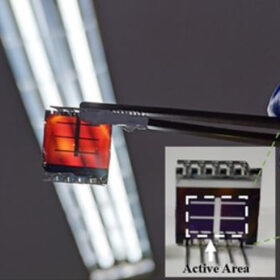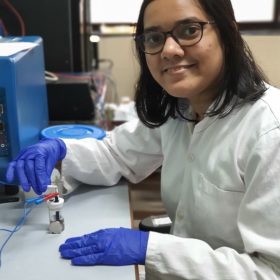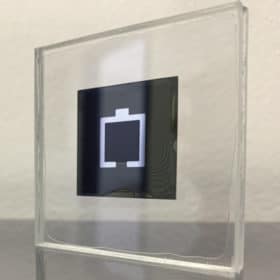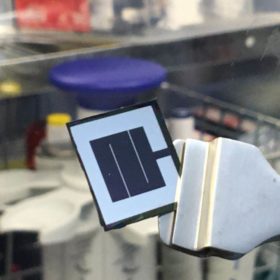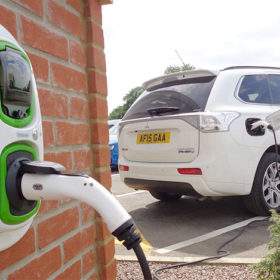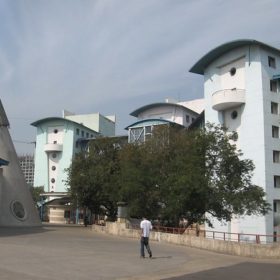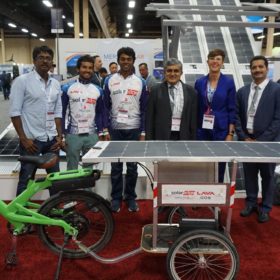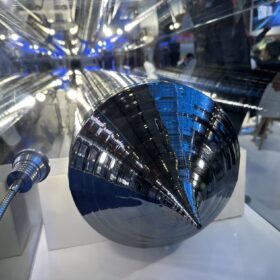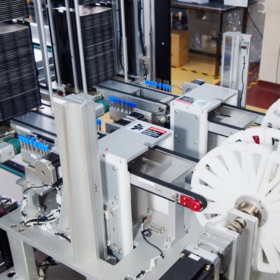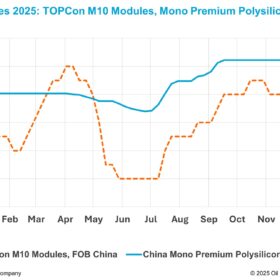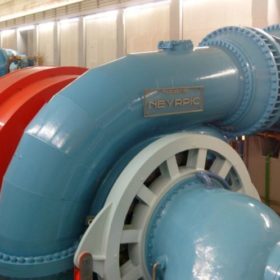4T silicon-perovskite PV cell hits 26.03% efficiency with transparent contact
Indian scientists have built a four-terminal silicon-perovskite solar cell that uses a top perovskite device with an efficiency of up to 17.1%. The top cell incorporates a room-temperature sputtered transparent conducting electrode (TCE) as a rear electrode.
Larsen & Toubro, IIT Bombay partner on green hydrogen technology development
The Indian multinational EPC solutions provider has signed an agreement with the Indian Institute of Technology (IIT) Bombay to develop scalable and cost-effective solutions for green hydrogen production jointly.
IIT Bombay researchers increase hydrogen yield three-fold using a 19% energy-efficient method
The researchers showed a premagnetized carbon-cobalt catalyst interface could deliver up to 650% enhancement in electrocatalytic kinetics of hydrogen evolution reaction. The synergistic interface was able to sustain magnetization, and thus rapid hydrogen evolution rate, for prolonged time periods.
IIT Bombay, BHEL in race to develop high-efficiency solar cells
India’s Ministry of New and Renewable Energy is funding the research to develop high-efficiency crystalline silicon solar cells, including those with passivated emitter and rear contact structure, and perovskites.
India and Israel to work together on perovskite solar cells and lithium sulfur batteries
Low-cost batteries and novel perovskite materials are among the topics selected for joint research and development.
New cathode for sustainable, high-density lithium-sulfur batteries
Shiv Nadar University researchers have synthesized sulfur-rich copolymers from petroleum and agricultural waste as cathode materials for Lithium-Sulfur (Li-S) batteries. IIT-Bombay, which is developing a Li-S battery prototype based on the technology, recorded an average Coulombic efficiency of 99.3% after 500 cycles at 1C, one hour rate of charge and discharge, for the cardanol/sulfur copolymer cathode containing 2.5wt% reduced graphene oxide (rGO).
Problems observed in solar module mounting structures in India
Findings from solar installation sites in Gujarat and Rajasthan and some suggestions to handle the issues.
IIT Bombay group suggests method of detecting early-stage discoloration in EVA encapsulants
A new, non-destructive technique has been proposed by researchers who say identifying early-stage discoloration in EVA encapsulants can help detect degradation in solar panels before power output is affected. The IIT Bombay group used an ultraviolet accelerated aging test during 34 days on three encapsulant samples.
US based Triton Solar buys stake in startup Ushva Clean, JV to launch electric car
Leveraging Triton Solar’s battery technology and Ushva’s experienced team from IIT Bombay, the strategic alliance aims to develop one-of-a-kind car with the longest travel range on a single charge and unique user experience.
SunPedal rides again, this time in U.S.
The SunPedal ride – a solar energy awareness initiative from India Institute of Technology Bombay (IIT-B) alumni, made 1321 km journey from San Francisco to San Diego on a solar e-bike.
